FACTSHEET
MASTER’S PROGRAMME CONFLICT STUDIES AND HUMAN RIGHTS
Dear students,
Welcome to Utrecht University!
Congratulations on having been selected for the MA in Conflict Studies and Human Rights for the academic year 2023/2024. This factsheet is intended to help you get acquainted with the MA programme. It includes referrals to the courses you can follow during your studies, details about the members of staff you will be working with over the course of your MA, as well as information regarding some of the services available to students at Utrecht University.
This coming September, you will be starting the MA programme together with many other students from all over the globe who are as eager as you to learn more about conflict and human rights. We encourage you to support, and learn from, one another. We strive to organize exclusive meetings and events throughout the academic year, and we hope these will help you to create a strong student community, which will serve as a continuous source of inspiration, both during and after your studies.
This factsheet should serve as a guide to the practical elements of undertaking your MA in Conflict Studies and Human Rights – but you may also regard its content as a promise that we will do everything to make your studies a fruitful and worthwhile experience.
I am looking forward to meeting you during the introduction days in September. The agenda of the introduction days will be provided by the end of August, By the end of August you will also receive a guide with practical information about the programme, as well as the syllabi of the courses of the first term.
We do hope you enjoy your time at Utrecht University and look forward to working with you to achieve your MA in Conflict Studies and Human Rights
Dr. Chris van der Borgh Programme Coordinator MA in Conflict Studies and Human Rights Utrecht University
For more information see our:

WEBSITE
DO YOU WANT TO PARTICIPATE?
Study Association Ubuntu
CS Ubuntu is the Study Association for Conflict Studies and Human Rights. Ubuntu organizes lectures, study trips, excursions and social activities. All activities are conducted in English. For more information see http://www.csubuntu.nl/
Curriculum Committee
The Curriculum Committee consists of students and staff members who jointly discuss and assess the quality of the education in the Master’s programme. Every year, the committee is looking for new student members. During the introduction days of the MA program the new group of students has the opportunity to decide who will be their representative. If you are interested in becoming a member, or if you want to contact the committee about the standard of education, please contact the president of the committee, dr. Pim Huijnen: p.huijnen@uu.nl
CORE TEAM OF LECTURERS
■ ■ ■
P ROF . D R . J OLLE DEMMERS
Expertise: theories of contemporary violent conflict, boundaries and violence, military neoliberalism and remote warfare.
■ ■ ■
D R M ARIO F UMERTON
Expertise: insurgency, militias, qualitative and quantitative research methods.
■ ■ ■
P ROF DR . A NTOINE B UYSE
Expertise: European Convention on Human Rights, transitional justice, law in post-conflict situations.
■ ■ ■
D R I VA V UKUSIC
Expertise: irregular armed groups, genocide and mass violence and transitional justice.
■ ■ ■
D R . C HRIS VAN DER BORGH
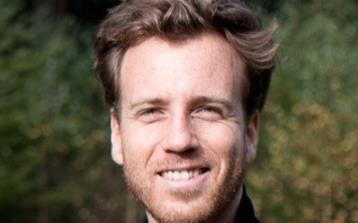
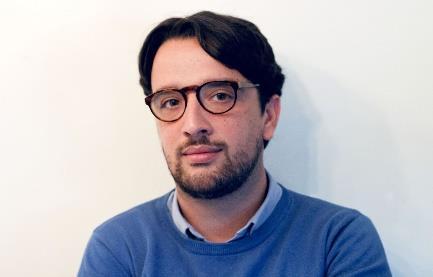
Expertise: peace building, security governance, political order, intervention, Central America


■ ■ ■
D R L UUK S LOOTER
Expertise: (urban) violence, structural inequalities, policing, ethnographic research.

■ ■ ■
D R . L ENNART B OLLIGER
Expertise: anti-colonial wars, veterans’ politics, mercenaries, military communities, and gender & militarism.
■ ■ ■
D R . F ABIO CRISTIANO
Expertise: cyber warfare, security, emerging tech (AI), media and war, Palestine/Middle East


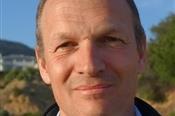
■ ■ ■
D R T HIJS J EURSEN
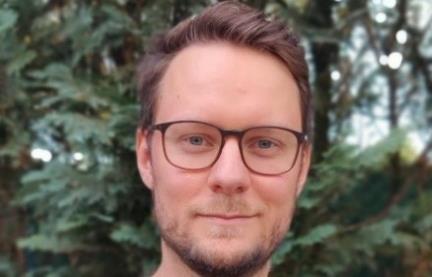
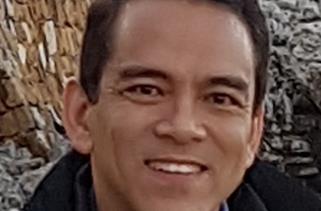
Expertise: policing, institutionalized racism, and urban inequalities, digital media.
■ ■ ■
D R . F RANCESCA H OOFT
Expertise: military interventions, the use of violence by state and non-state actors, identity and agency, conflict and the environment, transitional justice, and memory studies.
STUDY ADVISORS
Facing issues with your studies? The study advisors are there to help and support you to successfully complete your degree. They can act as confidential counsellors, advise on issues regarding illness and special circumstances and, together with you, look at the possibility to cope with the studies while dealing with disabilities or chronic illnesses. They can also help with specific arrangements and procedures, such as complaints, objections and appeals. You can find more information on the university website, at: https://students.uu.nl/en/hum/conflict-studies-and-human-rights/contact/study-advisor Click on the name of the study advisor to see who to contact if you have questions about your programme.
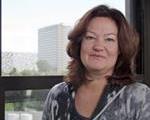
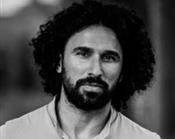
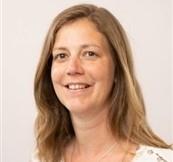
■
■ ■ E VELIEN H AZEWINKEL ■ ■ ■ M IRJAM VAN D EUTEKOM ■ ■ ■ M AJED Z AIN
THIS PROGRAMME
How to analyze the war in Ukraine? Will cities become the war zones of the future? How is the term ‘human rights’ used and abused in times of violent conflict? What are the ethical and political issues associated with the use of drones in zones of conflictand what impact does this have on the subjects of surveillance? Who defines ‘evil’ and what does ‘doing good’ mean?
These are just some of the pressing questions arising from the complex interconnectedness of today’s world. A solution to these questions can only be found through systematic analysis of processes of inclusion and exclusion, mobilization, and collective violence. Addressing these topics properly demands critical reflection on the national and international policies developed to contain, manage, resolve, or transform violent conflict.
The programme focuses on both the dynamics of violent conflicts and the problems associated with national and international military or humanitarian intervention by agencies such as the UN, NATO, or non-governmental organizations
The Master's programme in Conflict Studies and Human Rights offers good preparation for careers in any sector involving conflict analysis, including the public sector, business, non-governmental and international organizations. The use of English as the working language of the programme will be an advantage for students who will later pursue a career in an international setting. Ministries, NGOs, businesses, and municipalities are increasingly recruiting students with a degree in Conflict Studies.
COURSE PLANNER: You will find more information on this programme’s courses in the Course Planner:
https://cursusplanner.uu.nl /english/study/IR-CONM-16

After graduating from the Master of Conflict Studies and Human Rights, you will:
✓ Have gained in-depth knowledge of theoretical approaches to understanding and explaining contemporary conflict and human rights
✓ Have obtained a general understanding of international policy approaches to contemporary conflict and human rights, as well as an understanding of the political contexts in which they are used
✓ Be capable of presenting conclusions, information, goals, and underlying premises in a coherent and convincing manner to an audience of specialists and nonspecialists
✓ Be able to assess the problem of violent conflict and human rights by considering interrelated issues of identity, perception, discourse and practice
✓ Be able to undertake research that consists of systematic analysis and synthesis and is based on a dialogue between ideas and evidence

LEARNING OBJECTIVES
CURRICULUM
The MA in Conflict Studies and Human Rights comprises 60 European Credits Transfer System (ECTS), and is divided into four 10-week terms. In the first and second terms, students take six compulsory courses: (1) Theories of Violent Conflict, (2) Peace, Security, Politics, (3) Data in Conflict (4) Preparing Research Project, (5) The Conflict-Human Rights Nexus and (6) Contemporary Themes in Conflict Studies In addition to the taught courses, Masterclasses are organized with professionals and practitioners from the field.
Term 1 Theories of Violent Conflict (5 EC)
Jolle Demmers
Term 2 Conflict-Human Rights Nexus (5 EC)
Antoine Buyse
Peace, Security, Politics (5 EC) Chris van der Borgh
Preparing Research Project (5 EC) tba
Term 3 Internship (15 EC) OR Fieldwork OR Research Lab (15 EC)
Data in Conflict (5 EC) Thijs Jeursen
Contemporary Themes in Conflict Studies (5 EC)
Luuk Slooter, Hannah Goozee, Iva Vukusic
Masterclasses
Team of lecturers
Masterclasses Team of lecturers
Supervisors: Jolle Demmers, Mario Fumerton, Chris van der Borgh, Luuk Slooter, Lauren Gould, Hannah Goozee, Thijs Jeursen, Lennart Bolliger and Francesca Hooft (CS team).
Term 4 Thesis Writing [Independent work on Thesis: Dialogue between Ideas & Evidence] (15 EC)
Supervisors: see above (CS team)
In the third and fourth terms of the MA programme, students are given the freedom to select, à la carte, a programme trajectory of their choice. Students may elect to follow (1) an internship, (2) field research, or (3) a research lab, in which a group of students work together on a project led by a staff member. Some students may be encouraged to link their work to research currently being conducted by a faculty member of the MA programme. Those who opt for an internship will, in addition to producing an MA thesis, also be expected to write an Internship Report.
Regardless of the trajectory one chooses, in order to complete this MA programme all students must ultimately produce an academic thesis as partial fulfilment of the requirements for the degree of Master of Arts in Conflict Studies and Human Rights. As shown in Table 1, above, a period of research and thesis writing may be combined with an internship.
Internship of 10-12 weeks (15 ECTS; internship report of 4,000 words explaining the process and experience of internship) & Thesis Writing (15 ECTS). Ideally, the internship and the thesis are related, as to come to an accumulation of knowledge. They are, however, formally considered as two separate projects, with two separate documents: the report (15 ECTS, 4000 words) and the (smaller) thesis (15 ECTS of minimum 10,000 words; maximum 15,000 words). Word limits exclude reference section, notes, appendices, diagrams etc.
Fieldwork Research Project (15 ECTS fieldwork upon which the thesis is based, the project forms an integrated part of the final thesis) & Thesis Writing (15 ECTS). These two components result into one final product: a thesis of minimum 20,000 words and maximum 27,000 words. Word limits exclude reference section, notes, appendices, diagrams etc.
Research Lab (15 ECTS – depending on the lab you will co-produce a report, podcast, clip) & Thesis writing (15 ECTS) The lab and the thesis could be related, as to come to an accumulation of knowledge. They are, however, formally considered as two separate projects, with two separate documents: the lab report/podcast/clip (15 ECTS) and the (smaller) thesis (15 ECTS of minimum 10,000 words; maximum 15,000 words). Word limits exclude reference section, notes, appendices, diagrams etc.
IMPORTANT FOR HUMANITIES STUDENTS
New students students.uu.nl/hum-new Practical information for new students at the Humanities faculty.
Academic calendar students.uu.nl/hum-calendar
Information about days off, course registrations and change-of-enrolment days.
UU online

Information about our online systems and how to log in: students.uu.nl/hum-online In need of a manual? IT manuals: https://manuals.uu.nl/en
REGISTRATION, PROCEDURES, INTERNSHIP INFO
Student Information Desk Humanities students.uu.nl/hum-contact
Programme related matters, such as
• course registration
• course schedules
• study results & study progress (Osiris)
• graduation
Student Services students.uu.nl/en/contact/student-services
Studying at Utrecht University in general:
• registration as a UU student

• tuition fees
• elite athletes
• disability or chronic illness
Internship coordinator students.uu.nl/hum-internshipcoordinator


Information about:
• guidelines and procedures
• internship placements
QUESTIONS ABOUT ENTERING THE JOB MARKET
Career Services students.uu.nl/hum-careerservices
Advice on getting a job after graduation through workshops, CV check-up, and coaching. Your programme coordinator will inform you about programme-specific events.
NEED EXTRA HELP?
Study advisor: students.uu.nl/hum-studyadvisor






Student psychologist: students.uu.nl/psychologist
Workshops: Skills Lab: students.uu.nl/en-skillslab
THINKING OF GOING ABROAD?
International office Humanities: students.uu.nl/hum-io
OTHER FACILITIES
University Library: students.uu.nl/hum-library
Olympos sports centre: olympos.nl/en-us/home.aspx
Parnassos cultural centre: uu.nl/en/parnassos
FACT! You can find your grades, student card and timetable in the MyUU portal and the MyUU app: students.uu.nl/en/myuu and students.uu.nl/en/ myuu-app
FACT! In the second semester, you will have to register in Osiris for courses you wish to attend. If you want to switch courses, you can do so on the change-ofenrolment days before the start of the relevant block.
FACT! Deadlines are always listed in the course syllabus, which your lecturer will provide approximately 2 weeks prior to the course’s ’start.
FACT! If you need more information about specific aspects of your programme, e.g. internships or thesis, please see the Curriculum page on the programme website via students.uu.nl/hum.
FACT! Check students. uu.nl/hum-studentlife for information about living, jobs, sports and leisure in Utrecht!
© June 2023. Utrecht University, Faculty of Humanities. Every effort has been made to ensure that the information presented in this factsheet is correct and up to date. Utrecht University cannot be held liable for any false, inaccurate, or incomplete information presented herein.



















